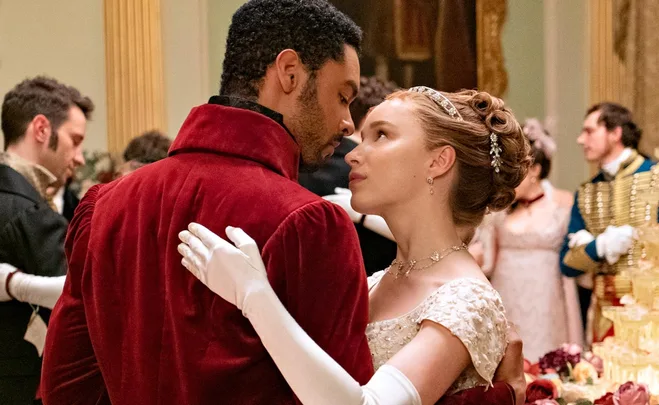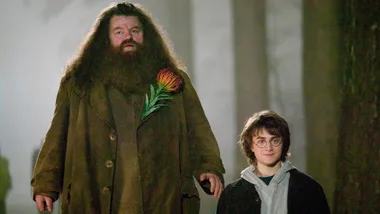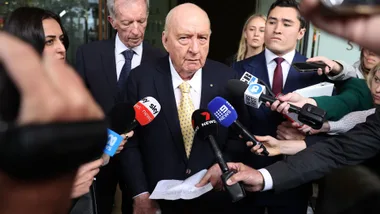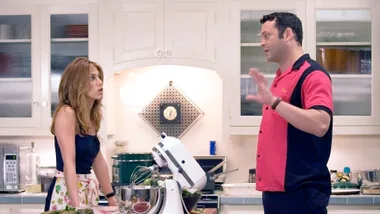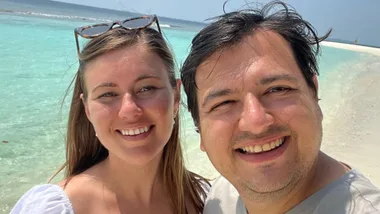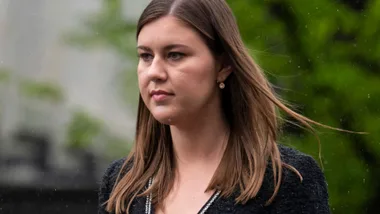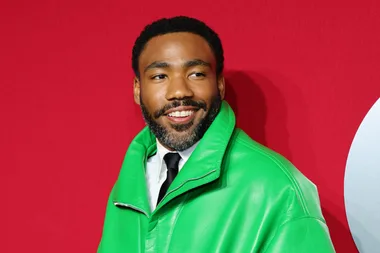When Bridgerton was released on Netflix at the end of 2020, its chokehold on the world was almost immediate. The period drama had all the makings of the perfect, binge-watch: town gossip, era-dressing and romance in droves.
But despite many viewers applauding the Shondaland series for being rooted in the female gaze, one particular scene caused major controversy. By law, it was technically a rape scene—but it wasn’t treated like one.
Now, the lack of warning and classification around the scene has helped to prompt an Australia-wide campaign by youth education organisation, Consent Labs, to make “lack of consent” an official classification alongside “violence”, “course language”, “sexual references” and other acts that warrant an onscreen warning via the Classifications Board.
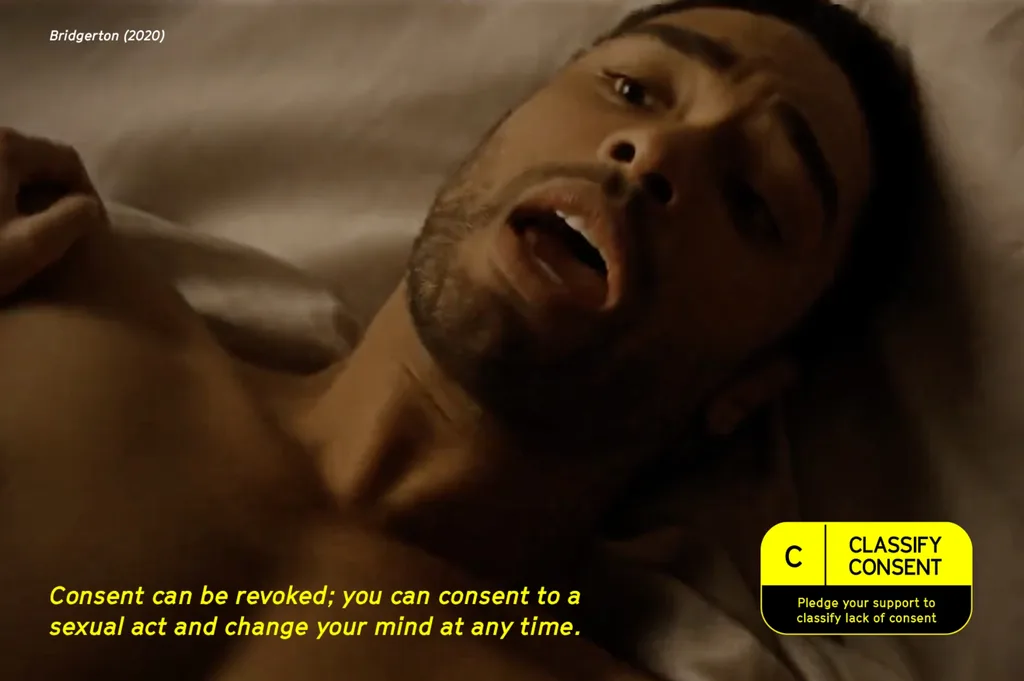
The problematic Bridgerton scene comes unexpectedly when Daphne and the Duke of Hastings are having sex. Daphne, who is positioned on top of the Duke, wants to have his child. But up until this point, the Duke has always used the pull out method by means of contraception.
While the Duke initially consents to sex with Daphne, he tells her to stop before he reaches climax with the intention of pulling out once again. Aware of his motives, Daphne ignores him and continues to have sex with him until he ejaculates inside her. This act would legally be classed as rape given that a person is able to revoke consent at any point during the act, despite having initially consented.
“Consent is often never asked for and always assumed [onscreen],” Consent Labs co-founder, Angelique Wan tells us.
“And often a character will actually say ‘no’, but then the person still goes in for the kiss anyway, and it’s all romanticised and then there’s sexy music behind it, and then it turns into a sex scene—and that’s just played off as fine.”
It’s a troubling reality given that three in five Australians are actually unable to recognise consent onscreen, and a quarter are unable to define it, per research commissioned by Consent Labs for the launch of the #ClassifyConsent Campaign.
Wan, who teaches consent at schools across Australia, adds that she often gets questions from students about how they can ask for consent without making it awkward.
“These conversations always come around to the fact that you rarely see consent role modelled anywhere, it’s definitely not modelled in relationships we see onscreen,” she explains.
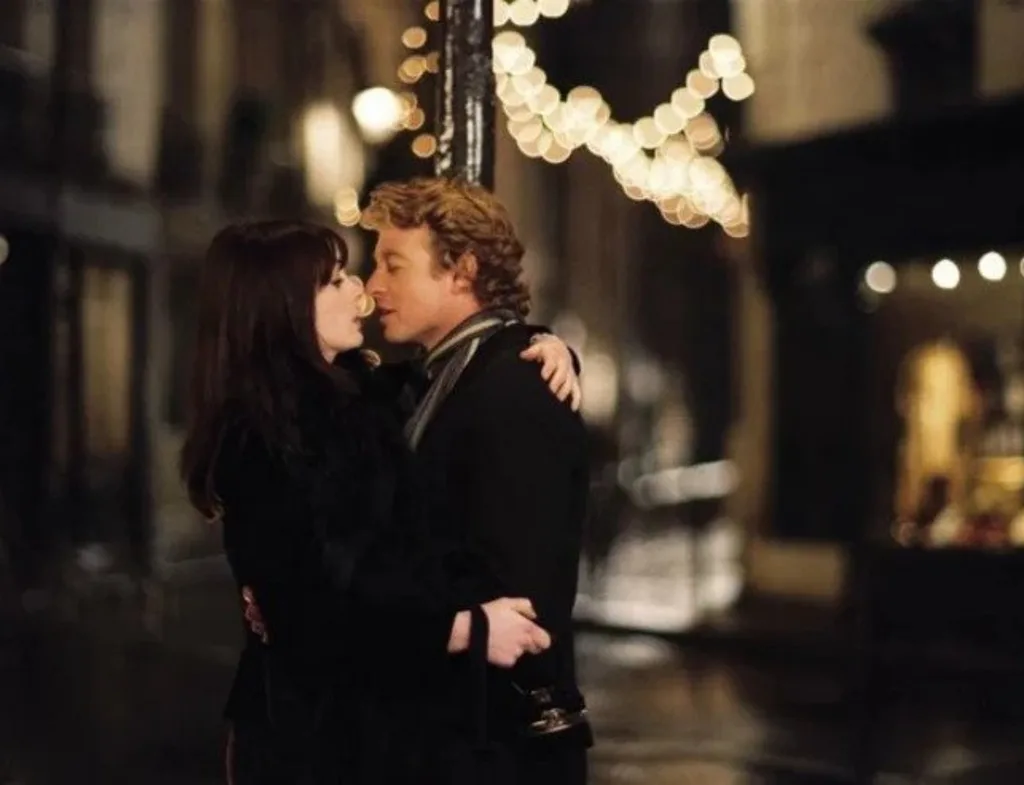
Consent Labs’ campaign includes several other examples where consent isn’t given in well-known film and television scenes. This includes a later scene in The Devil Wears Prada where Andy is noticeably intoxicated and tells her love interest, Christian that she doesn’t want to kiss him despite his advances. Eventually, she gives in and it’s implied they have sex.
By law, a person cannot assume consent is given if their potential partner is heavily intoxicated or under the influence of drugs.
Similarly, Disney films Snow White and Sleeping Beauty both involve scenes where the sleeping Princess is kissed awake. Again, an instigator is unable to assume consent is given if their partner is asleep or unconscious.
“It isn’t about cancelling or censoring these films, this classification is like any other classification that exists—we’re just informing viewers as to what they’re seeing on screen,” Wan continues.
Consent Labs co-founder Dr Joyce Yu and Wan are spearheading the campaign, #ClassifyConsent by rallying for Australians to make pledges to the website classifyconsent.com.au. They hope a subsequent Federal Petition sent to the Classifications Board will not only result in an official classification called “lack of consent”, but also educate Australians on this important topic.
If this post brings up any issues for you, or if you feel like you need to speak to someone, please call 1800 RESPECT (1800 737 732) – the national sexual assault, domestic and family violence counselling service or contact Full Stop Australia.
